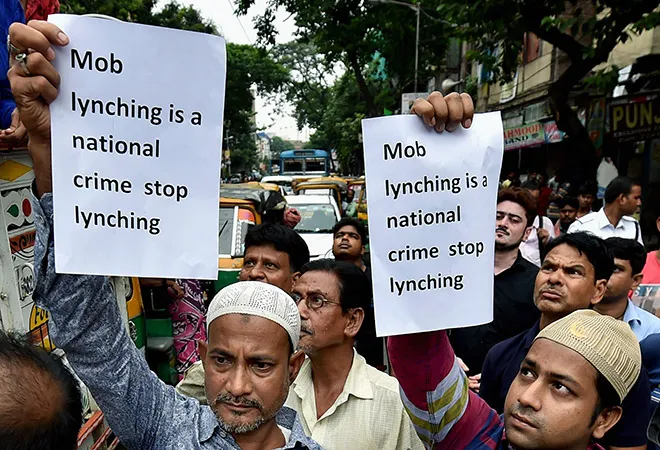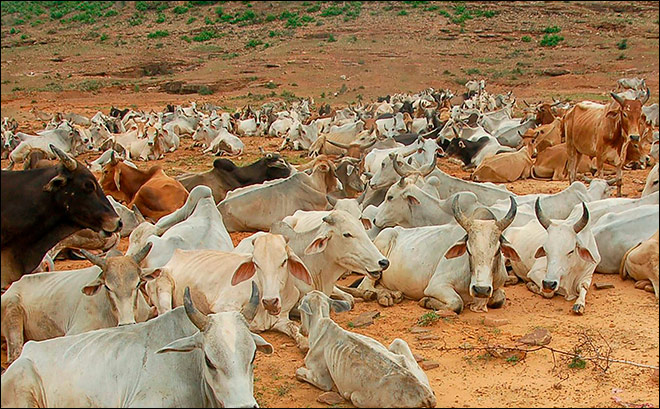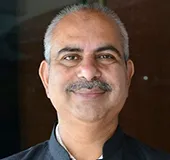
There is an urgent need to bring in a special law to deal with the menace of mob lynching. The special law dealing with the atrocities against the scheduled caste and scheduled tribes — the SC/ST (Prevention of Atrocities) Act 1989 — may not have ended caste discrimination, but it has acted as a great deterrent.
After all, mob lynching is no ordinary crime. The evidence collected by IndiaSpend suggests that since 2010, there were as many as 87 incidents of hate crimes on 289 victims in cow related violence. Significantly, 98% of these mob lynching incidents have taken place since May 2014. The IndiaSpend database of cow-related hate crime was quoted by senior advocate Indira Jaisingh in her written submission to the Supreme Court recently for the petition to crackdown on cow vigilantes. The apex court had used strong language while asking the Union Government to curb mob lynching. It had observed, “Citizens cannot take the law into their hands or become law unto themselves,” and added that “horrendous acts of mobocracy” cannot become the new norm.
Location of the attack, identity of the attacker, and victim, have also not been revealed by the ministry, which looks after the internal security.
As per Dainik Bhaskar (29 July 2018) investigations in 12 States, only two persons have been convicted in crimes relating to mob lynching.
In March this year, the Union Home Ministry admitted that between 2014 to 3 March 2018, 45 persons were killed in 40 cases of mob lynching across nine States. However, the ministry clarified that its data did not have details on the motive of these incidents, whether they were due to cow vigilantism, communal or caste hatred, or rumours of child-lifting, etc. Similarly, location of the attack, identity of the attacker, and victim, have also not been revealed by the ministry, which looks after the internal security.
On 18 July 2018, Union Minister of State for Home, Hansraj Ahir, told the Rajya Sabha, “The National Crime Records Bureau (NCRB) does not maintain specific data with respect to lynching incidents in the country.” Ahir said in response to a query whether the Union Home Ministry was keeping record of incidents of lynching by mobs which are increasing across several parts of the country. In fact, as per the NCRB, mob lynching phrase is not even legally defined. Also missing from the narrative is any credible data on the nature of violence, alleged reasons, and affiliation to organisation.
On 23 July 2018, the Union Government indicated its first concrete instance of concern towards mob lynching incidents, in the wake of the Supreme Court directive to curb mob lynching violence. It constituted a high level committee under the Union Home Secretary to deliberate about the issue and make recommendations within four weeks. Several senior government functionaries such as the Union Secretary, Department of Justice, Secretary, Department of Legal Affairs, Secretary, Legislative Department and Secretary, Social Justice and Empowerment were made members of the committee.
In addition, the government also set up a Group of Ministers (GoM) headed by the Union Home Minister to consider the recommendations of the high level committee. The Minister, External Affairs, Minister, Road Transport and Highways; Shipping, Water Resources, River Development and Ganga Rejuvenation, Minister, Law & Justice and Minister, Social Justice and Empowerment were made members of the Group of Ministers. The GoM will submit their recommendations to Prime Minister Narendra Modi.
A Union Home Ministry spokesman pointed out that as per the Indian constitutional scheme, ‘Police’ and ‘Public Order’ are State subjects. State Governments are, therefore, responsible for controlling crime, maintaining law and order, and protecting the life and property of the citizens. They are empowered to enact and enforce laws to curb crime in their jurisdiction. He pointed out that an advisory to State Governments was issued on 4 July 2018. Earlier, another advisory was issued on 9 August 2016 on disturbances by miscreants in the name of protection of cow.
 Per IndiaSpend estimates, since 2010, there were as many as 87 incidents of hate crimes on 289 victims in cow related violence. | Source: PTI
Per IndiaSpend estimates, since 2010, there were as many as 87 incidents of hate crimes on 289 victims in cow related violence. | Source: PTI
Many legal experts and community leaders, however, insist that these measures would not suffice. They feel mob lynching is of a separate genre and needs special attention and treatment. Mob lynching can not be aptly handled under section 323, 324, 326, 307 and 302 of the Indian Penal Code.
Section 323 of the IPC deals with punishment for voluntarily causing hurt while section 324 deals with those wilfully causing hurt by dangerous weapons. Section 326 entails causing grievous hurt, section 307 and section 302 deal with attempt to murder and punishment for murder, respectively. As per the Dainik Bhaskar investigation, in mob lynching, fixing the onus of crime on individuals proves far more tricky. There are instances where unruly mob has tried to implicate police, accusing them of custodial death when a grievously injured victim was handed over to the police and died upon reaching the hospital.
In some States, there have been instances of a section of the political class being ‘considerate’ towards lumpen vigilantes. In the absence of a strong political will, there is a possibility that the new law may not be diligently enforced.
Some argue that more than enacting a law, Union and State governments need to show greater political will to curb mob lynching. In some States, there have been instances of a section of the political class being ‘considerate’ towards lumpen vigilantes. In the absence of a strong political will, there is a possibility that the new law may not be diligently enforced.
This is where comparison with the SC/ST Act of 1989 gains relevance. While many governments and law enforcement agencies were often not too enthusiastic about invoking the SC/ST Act, the legal provisions of the law have made a sea change.
A year ago, Union Home Minister Rajnath Singh had told the Lok Sabha that disinformation, rumours and fake news are sources of mob violence. Singh had also insisted that it was State governments’ responsibility to maintain public order.
The SC/ST Act of 1989 lists 22 offences relating to various patterns or behaviours inflicting criminal offences and breaking the self-respect and esteem of the scheduled castes and tribes community. This includes denial of economic, democratic and social rights, discrimination, exploitation and abuse of the legal process. As per Section 14 of the SC/ST Act, there is a provision for speedy trial and setting of a court of session to be a Special Court to try offences under this Act in each district of the country.
As per a report published in The Hindu in the year 2016, 11,060 cases were taken up for investigation and the charge-sheeting rate was 77%. The rate of conviction is barely 16% due to many factors like witnesses turning hostile, belated prosecution, loss of interest by the victim and witnesses due to long delay in completion of the trial, absence of corroborative evidence, according to a report by the Union Ministry for Social Justice and Empowerment.
As per a report published in The Indian Express on 3 April, the number of cases under the SC-ST Act revealed that the cases that came for trial between 2010 and 2016 showed a massive spike in pendency, a steady decline in the number of cases that complete trial, and a fall in conviction rates.
In spite of these limitations, enacting a special law against mob lynching on the lines of the SC/ST Act may serve as an effective deterrent. As columnist and writer Kanchan Gupta wrote on Twitter a few days ago, “ If you are a nationalist, you should be appalled by #lynchings because they tar the name of your nation at home and abroad. This is definitely *not* the#NewIndia PM Modi talks about and you cheer about. It is for #BJP to take a call and decide the benchmark it wishes to set.”
Click here for more information.
The views expressed above belong to the author(s). ORF research and analyses now available on Telegram! Click here to access our curated content — blogs, longforms and interviews.




 Per IndiaSpend estimates, since 2010, there were as many as 87 incidents of hate crimes on 289 victims in cow related violence. | Source: PTI
Per IndiaSpend estimates, since 2010, there were as many as 87 incidents of hate crimes on 289 victims in cow related violence. | Source: PTI PREV
PREV


